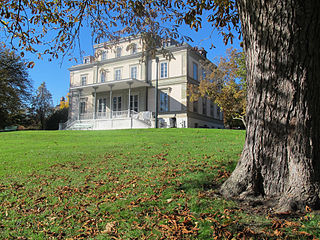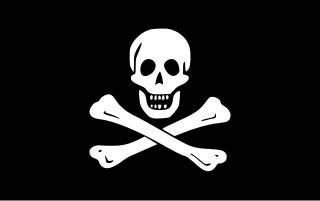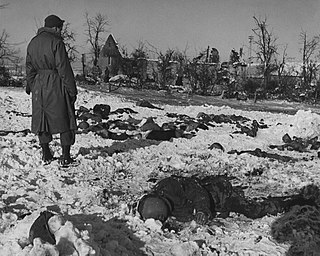 W
WInternational criminal law is a body of public international law designed to prohibit certain categories of conduct commonly viewed as serious atrocities and to make perpetrators of such conduct criminally accountable for their perpetration. The core crimes under international law are genocide, war crimes, crimes against humanity, and the crime of aggression. This article also discusses crimes against international law, which may not be part of the body of international criminal law.
 W
WAn Act to amend the Criminal Code is a statute passed by the Canadian Parliament in 2012. It amended the Criminal Code to enable the Government of Canada to prosecute Canadians for trafficking in persons while outside of Canada.
 W
WAvocats Sans Frontières (ASF), also known as Advocaten Zonder Grenzen or Lawyers without Borders, is an international NGO, active in the human rights and development sector. Created in 1992 by a group of Belgian lawyers, ASF’s main objective is the realisation of institutions and mechanisms that facilitate access to independent and fair justice systems that ensure legal security and guarantee fundamental human rights for everyone.
 W
WCivilian casualties occur in a general sense, when civilians are killed or injured by non-civilians, mostly law enforcement officers, military personnel, or criminals such as terrorists and bank robbers. Under the law of war, it is referred to civilians who perished or suffered wounds as a result of wartime acts. In both cases, they can be associated with the outcome of any form of action regardless of whether civilians were targeted directly or not.
 W
WCommand responsibility, sometimes referred to as the Yamashita standard or the Medina standard, and also known as superior responsibility, is the legal doctrine of hierarchical accountability for war crimes.
 W
WCrimes against humanity are certain acts that are purposely committed as part of a widespread or systematic attack, directed against any civilians, in time of war or peace. The first prosecution for crimes against humanity took place at the Nuremberg trials. Initially being considered for legal use, widely in International Law, following the Armenian Genocide.
 W
WCase Concerning the Arrest Warrant of 11 April 2000 [2002] ICJ 1 was a public international law case before the International Court of Justice (ICJ) with a judgment issued on 14 February 2002.
 W
WEcocide is criminalized human activity that violates the principles of environmental justice, as by substantially damaging or destroying ecosystems or by harming the health and well-being of a species.
 W
WThe European Arrest Warrant (EAW) is an arrest warrant valid throughout all member states of the European Union (EU). Once issued, it requires another member state to arrest and transfer a criminal suspect or sentenced person to the issuing state so that the person can be put on trial or complete a detention period.
 W
WThe Geneva Academy of international Humanitarian Law and Human Rights is a postgraduate joint center located in Geneva, Switzerland. The faculty includes professors from both founding institutions and guest professors from major universities.
 W
WGenocide is the intentional action to destroy a people—usually defined as an ethnic, national, racial, or religious group—in whole or in part. A term coined by Raphael Lemkin in his 1944 book Axis Rule in Occupied Europe, the hybrid word genocide is a combination of the Greek word γένος and the Latin suffix -caedo.
 W
WThe list of parties to the Genocide Convention encompasses the states who have signed and ratified or acceded to Convention on the Prevention and Punishment of the Crime of Genocide to prevent and punish actions of genocide in war and in peacetime.
 W
WGlobal Justice or Global Revenge? International Criminal Justice at the Crossroads (2003) is a book by Austrian philosopher Hans Köchler.
 W
WHans Köchler's Lockerbie trial observer mission stemmed from the dispute between the United Kingdom, the United States, and Libya concerning arrangements for the trial of two Libyans accused of causing the explosion of Pan Am Flight 103 over Lockerbie on 21 December 1988.
 W
WImmunity from prosecution is a doctrine of international law that allows an accused to avoid prosecution for criminal offences. Immunities are of two types. The first is functional immunity, or immunity ratione materiae. This is an immunity granted to people who perform certain functions of state. The second is personal immunity, or immunity ratione personae. This is an immunity granted to certain officials because of the office they hold, rather than in relation to the act they have committed.
 W
WThe International Association of Genocide Scholars (IAGS) is an international non-partisan organization that seeks to further research and teaching about the nature, causes, and consequences of genocide, including the Holocaust, the Armenian Genocide, the genocides in Cambodia, Rwanda, Burundi, Bosnia-Herzogovina, Bangladesh, Sudan, and other nations. The IAGS also advances policy studies on the prevention of genocide. The association's members consider comparative research, case studies, links between genocide and other human rights violations, predictive models for prevention of genocide, and tribunals and courts for the punishment of genocide. The organization's membership includes academics, anti-genocide activists, artists, genocide survivors, journalists, jurists, and public policy makers. Membership is open to interested persons worldwide.
 W
WAn Interpol notice is an international alert circulated by Interpol to communicate information about crimes, criminals, and threats by police in a member state to their counterparts around the world. The information disseminated via notices concerns individuals wanted for serious crimes, missing persons, unidentified bodies, possible threats, prison escapes, and criminals' modus operandi.
 W
WJoint criminal enterprise (JCE) is a legal doctrine used during war crimes tribunals to allow the prosecution of members of a group for the actions of the group. This doctrine considers each member of an organized group individually responsible for crimes committed by group within the common plan or purpose. It arose through the application of the idea of common purpose and has been applied by the International Criminal Tribunal for the former Yugoslavia to prosecute political and military leaders for mass war crimes, including genocide, committed during the Yugoslav Wars 1991–1999.
 W
WNuremberg and Vietnam: An American Tragedy is a book written by Telford Taylor, the Chief Counsel Prosecutor at the Nuremberg Trials.
 W
WPiracy is an act of robbery or criminal violence by ship or boat-borne attackers upon another ship or a coastal area, typically with the goal of stealing cargo and other valuable items or properties. Those who engage in acts of piracy are called pirates, while dedicated ships that are used by them are called pirate ships. The earliest documented instances of piracy were in the 14th century BC, when the Sea Peoples, a group of ocean raiders, attacked the ships of the Aegean and Mediterranean civilizations. Narrow channels which funnel shipping into predictable routes have long created opportunities for piracy, as well as for privateering and commerce raiding. Historic examples include the waters of Gibraltar, the Strait of Malacca, Madagascar, the Gulf of Aden, and the English Channel, whose geographic structures facilitated pirate attacks. A land-based parallel is the ambushing of travelers by bandits and brigands in highways and mountain passes. Privateering uses similar methods to piracy, but the captain acts under orders of the state authorizing the capture of merchant ships belonging to an enemy nation, making it a legitimate form of war-like activity by non-state actors.
 W
WThe Russell Tribunal, also known as the International War Crimes Tribunal, Russell-Sartre Tribunal, or Stockholm Tribunal, was a private People's Tribunal organised in 1966 by Bertrand Russell, British philosopher and Nobel Prize winner, and hosted by French philosopher and writer Jean-Paul Sartre, along with Lelio Basso, Simone de Beauvoir, Vladimir Dedijer, Ralph Schoenman, Isaac Deutscher and several others. The tribunal investigated and evaluated American foreign policy and military intervention in Vietnam. This had taken place in the decade following the 1954 defeat of French forces at Diên Biên Phu and the establishment of North and South Vietnam.
 W
WThe Special Tribunal for Lebanon (STL), also referred to as the Lebanon Tribunal or the Hariri Tribunal, is a tribunal of international character applying Lebanese criminal law to carry out the investigation and prosecution of those responsible for 14 February 2005 assassination of Rafic Hariri, the former Lebanese prime minister, and the deaths of 21 others, as well as those responsible for connected attacks.
 W
WSuperior orders, often known as the Nuremberg defense, just following orders, Due Obedience, or by the German phrase Befehl ist Befehl, is a plea in a court of law that a person, whether a member of the military, law enforcement, a firefighting force, or the civilian population, should not be considered guilty of committing actions that were ordered by a superior officer or official.
 W
WThe United Nations Congress on Crime Prevention and Criminal Justice is a United Nations (UN) sponsored congress on the topics of crime, crime prevention and criminal justice, held every five years. It is organized by the United Nations Office on Drugs and Crime (UNODC). Participants of the Congress include UN Member States and Observers, international organizations, non-governmental organization and individual experts.
 W
WA war crime is an act that constitutes a serious violation of the laws of war that gives rise to individual criminal responsibility. Examples of crimes include intentionally killing civilians or prisoners, torturing, destroying civilian property, taking hostages, performing a perfidy, raping, using child soldiers, pillaging, declaring that no quarter will be given, and seriously violating the principles of distinction, proportionality, and military necessity.